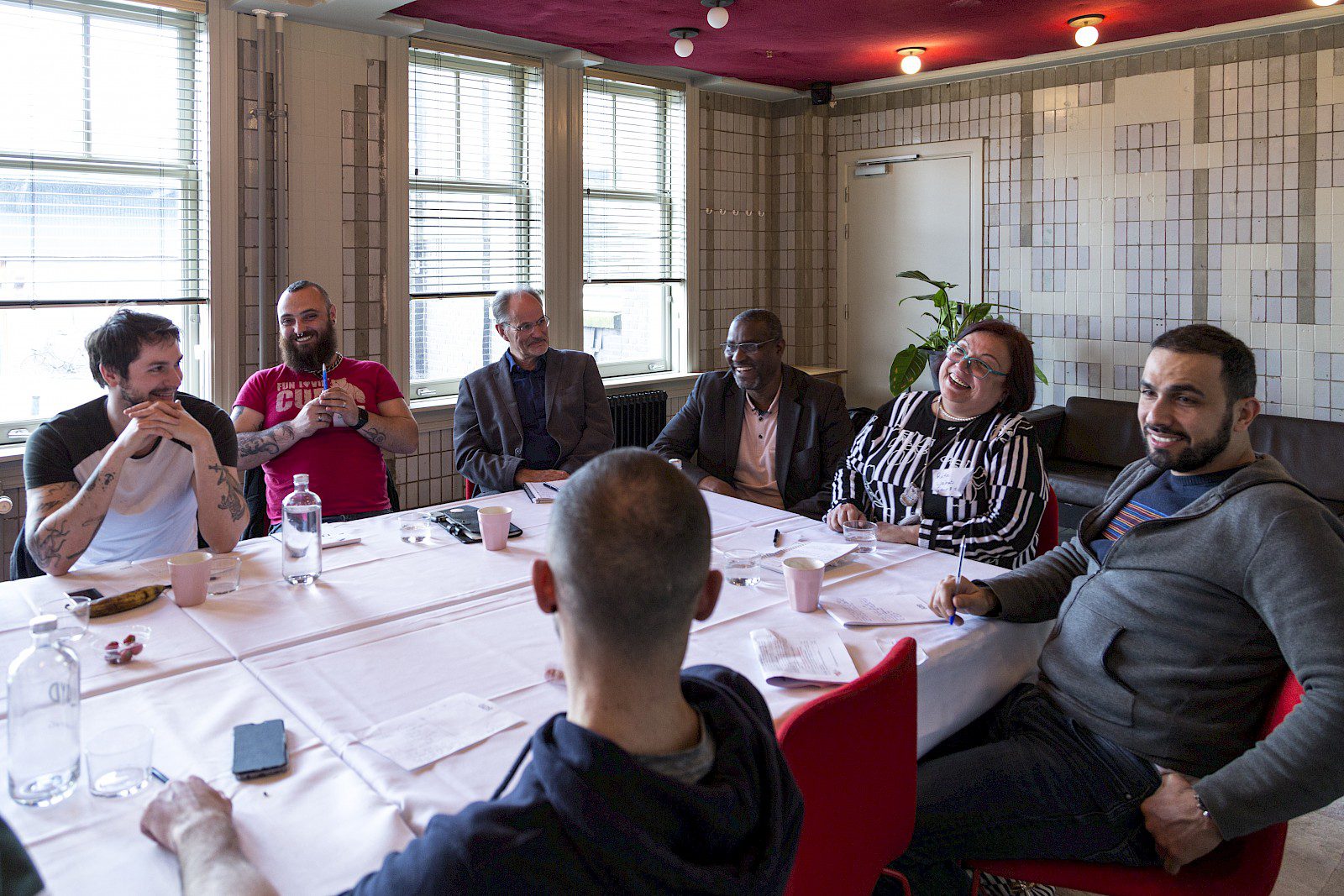MENA Rosa: Grassroots Mobilization Against HIV and Gender-based Violence
“Gender equality starts at home, grows in the society and blossoms in the legal environment. The road is long, but we have taken the first steps.” Rita Wahab, Regional Coordinator, MENA Rosa
MENA Rosa, launched in 2010, was the first regional association dedicated to women living with HIV in the Middle East and North Africa. Currently working in 13 countries in three different languages, MENA Rosa has created a vast network of women working together to provide support to other women living with HIV, while raising awareness and working to reduce stigma. The regional focal points – the women implementing the services – provide a range of services dependent on location and availability, such as tending to the sick in hospitals, facilitating support groups, providing food and supplies, and advocating for access to services. The work is carried out primarily by MENA Rosa’s network of volunteers, which grows organically as more women receive care and support.

MENA Rosa has received RCF funding since 2016. The grant allowed MENA Rosa to build internal capacity, implement a signature framework to respond to violence against women, called ALIV(H)E, and ultimately shift their institutional focus to bring GBV to the forefront.
The ALIV(H)E framework was implemented in partnership with Frontline AIDS and UNAIDS MENA to prevent and address violence against women in the context of HIV, through a project called Leadership and Research Now in Middle East and North Africa “LEARN-MENA”. The project was implemented, using the framework, from April to December 2018 with 256 women living with and most affected by HIV in MENA. Through its network of focal points, MENA Rosa conducted participatory, community-based dialogues in Egypt, Morocco, Algeria, Lebanon, Jordan, Tunisia, and Sudan. These community-based dialogues were organized with women in all their diversity: WLHIV, SWs, IDUs, Transgender persons, migrants and partners of KPs articulating cases of violence in families, in the community, in health care settings, police, and more particularly from intimate sexual partners. These conversations gave great insight into the violence HIV+ women experience, and allowed the women an opportunity to tell their story and provide their recommendations.
Central to the project was the establishment of a regional reference group (RRG) made up of MENA Rosa focal points from all the project countries. The aim of the RRG was both to ensure that the project was grounded in and responded to the lived reality of women in their diversity; and to strengthen the network by making sure that learning from the project was fed back into the network via the RRG. Building the technical and leadership capacity of the MENA Rosa Network was thus central to the success of the ALIV(H)E project. Great time and attention was paid to training the women who would be leading the activities, in order to maximize the project’s impact. The RRG members were supported to lead activities with and for their communities, and to validate and present the findings. Rita Wahab, Regional Coordinator, notes, “We learned that investing more time strengthening the capacity of MENA Rosa focal points in each country implementing the activities so that they were well equipped, comfortable, and empowered to translate the framework from the get-go is very important.”
In December 2018, MENA Rosa was able to hold a panel discussion on the linkages between HIV and GBV, informed by the LEARN project. This event, held at a Lebanese university, targeted nursing and public health students with the goal of increasing awareness of and sensitization towards people living with HIV, so that students would not contribute to further stigma when they start working with patients. The event was a great success – more than 100 students were in attendance, and MENA Rosa was able to strengthen their partnership with the university and the Ministry of Women’s Affairs, who sponsored the event.
The results of the LEARN MENA dialogues and activities, in conjunction with increased training of their focal points, has allowed MENA Rosa to make violence against women central to their mission. Their application of ALIV[H]E in the region has shown that GBV and HIV are distinctly linked, and laid the groundwork for further work to address these linkages in the region. Through RCF support, MENA Rosa has been able to train their team of focal points in HIV response and treatment literacy, to the point that they now feel comfortable introducing GBV training. Although network recruitment and training is always ongoing, the shift towards GBV speaks to an increase in network capacity and trust in the quality of work produced. Through its growing capacity and reach, MENA Rosa is well aligned to meet the evolving needs of women living with HIV in MENA.